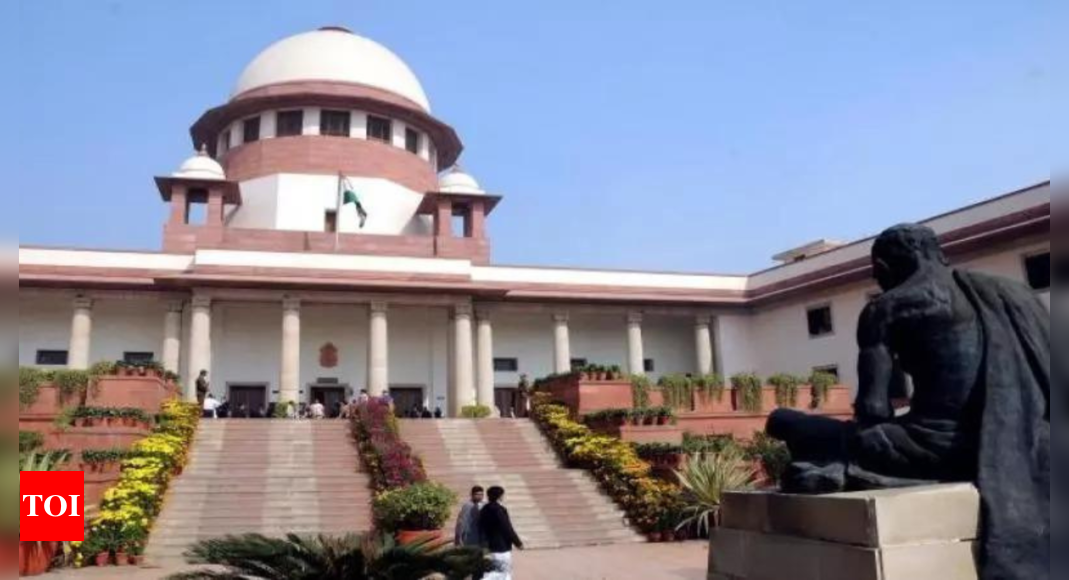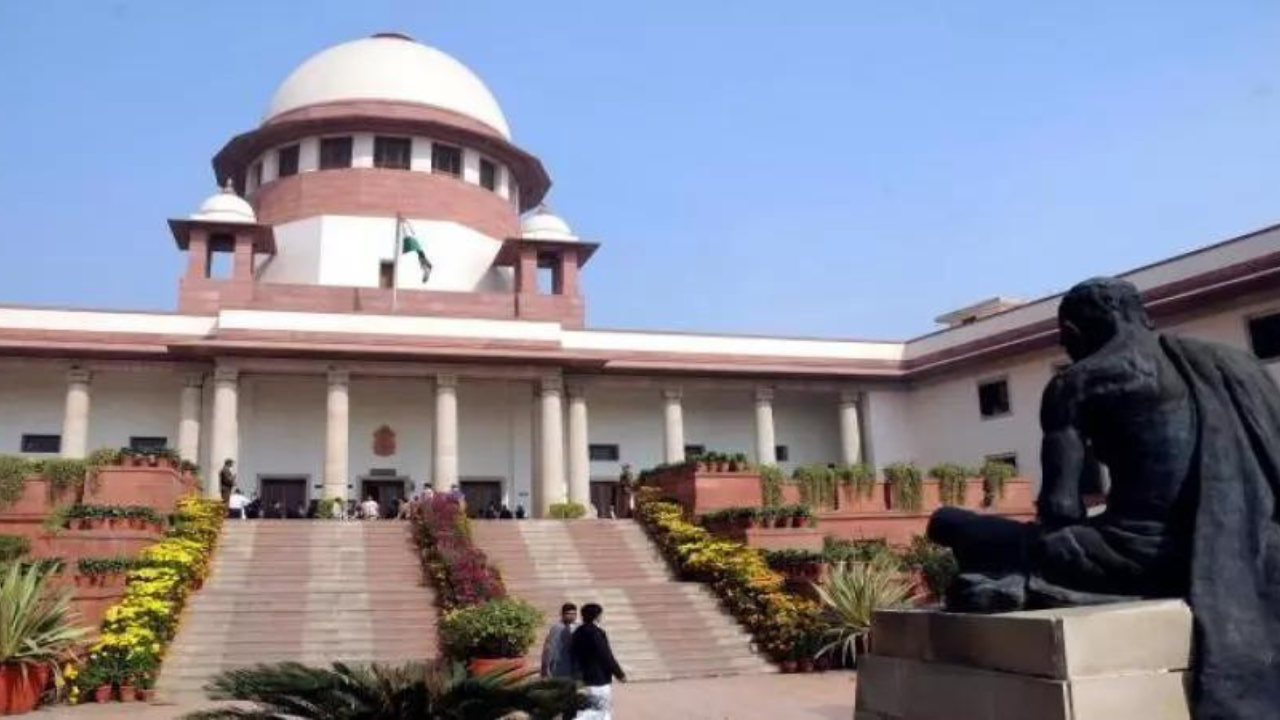
[ad_1]
NEW DELHI: In a researched judgment on parliamentary and legislative privileges and immunities, Supreme Court on Monday ruled that MPs and MLAs cannot claim privileges and immunities unrelated to functioning of the House and said a wider interpretation of the twin terms would create a class of citizens enjoying “unchecked exemption” from ordinary law.
Overruling the 1998 JMM bribery case judgment that shielded bribe-taking MPs and MLAs from prosecution on the basis of what has been held to be a misinterpretation of the privileges and immunities enjoyed by legislators for anything said or any vote cast inside the House, a seven-judge bench, led by CJI D Y Chandrachud, said neither MPs/MLAs nor the House itself could claim privileges which are not essentially related to their functioning.
Penning the 135-judgement, he said, “To give any privilege unconnected to functioning of Parliament or legislature by necessity is to create a class of citizens which enjoys unchecked exemption from ordinary application of the law. This was neither the intention of Constitution nor the goal of vesting Parliament and legislature with powers, privileges, and immunities.””The burden of satisfying that a privilege exists and that it is necessary for the House to collectively discharge its function lies with the person or body claiming the privilege. The Houses of Parliament or legislatures, and the committees are not islands which act as enclaves shielding those inside from the application of ordinary laws. The lawmakers are subject to the same law that the law-making body enacts for the people it governs and claims to represent,” said SC.
It laid down a two-fold test to determine whether the claim for privilege by an individual MP or MLA is valid. “First, the privilege claimed has to be tethered to the collective functioning of the House, and second, its necessity must bear a functional relationship to the discharge of essential duties of a legislator,” it said.
The bench, also comprising Justices A S Bopanna, M M Sundresh, P S Narasimha, J B Pardiwala, Sanjay Kumar and Manoj Misra, recalled Justice Chandrachud-authored K Ajith judgment of 2021 when it permitted prosecution of a member of Kerala assembly for climbing on the dais of the Speaker and causing damage to House property.
In Ajith case, SC had said, “Privileges and immunities are not gateways to claim exemptions from general law of the land, particularly as in this case, the criminal law which governs the action of every citizen. To claim an exemption from application of criminal law would be to betray the trust which is impressed on the character of elected representatives as the makers and enactors of the law.” This view was reiterated in the Sita Soren judgement of Monday.
The 7-judge bench said, “The evolution of parliamentary privileges in various parliamentary jurisdictions has shown a consistent pattern that when an issue involving privileges arises, the test applied is whether the privilege claimed is essential and necessary to the orderly functioning of the House or its committee.”
Overruling the 1998 JMM bribery case judgment that shielded bribe-taking MPs and MLAs from prosecution on the basis of what has been held to be a misinterpretation of the privileges and immunities enjoyed by legislators for anything said or any vote cast inside the House, a seven-judge bench, led by CJI D Y Chandrachud, said neither MPs/MLAs nor the House itself could claim privileges which are not essentially related to their functioning.
Penning the 135-judgement, he said, “To give any privilege unconnected to functioning of Parliament or legislature by necessity is to create a class of citizens which enjoys unchecked exemption from ordinary application of the law. This was neither the intention of Constitution nor the goal of vesting Parliament and legislature with powers, privileges, and immunities.””The burden of satisfying that a privilege exists and that it is necessary for the House to collectively discharge its function lies with the person or body claiming the privilege. The Houses of Parliament or legislatures, and the committees are not islands which act as enclaves shielding those inside from the application of ordinary laws. The lawmakers are subject to the same law that the law-making body enacts for the people it governs and claims to represent,” said SC.
It laid down a two-fold test to determine whether the claim for privilege by an individual MP or MLA is valid. “First, the privilege claimed has to be tethered to the collective functioning of the House, and second, its necessity must bear a functional relationship to the discharge of essential duties of a legislator,” it said.
The bench, also comprising Justices A S Bopanna, M M Sundresh, P S Narasimha, J B Pardiwala, Sanjay Kumar and Manoj Misra, recalled Justice Chandrachud-authored K Ajith judgment of 2021 when it permitted prosecution of a member of Kerala assembly for climbing on the dais of the Speaker and causing damage to House property.
In Ajith case, SC had said, “Privileges and immunities are not gateways to claim exemptions from general law of the land, particularly as in this case, the criminal law which governs the action of every citizen. To claim an exemption from application of criminal law would be to betray the trust which is impressed on the character of elected representatives as the makers and enactors of the law.” This view was reiterated in the Sita Soren judgement of Monday.
The 7-judge bench said, “The evolution of parliamentary privileges in various parliamentary jurisdictions has shown a consistent pattern that when an issue involving privileges arises, the test applied is whether the privilege claimed is essential and necessary to the orderly functioning of the House or its committee.”
[ad_2]
Source link








